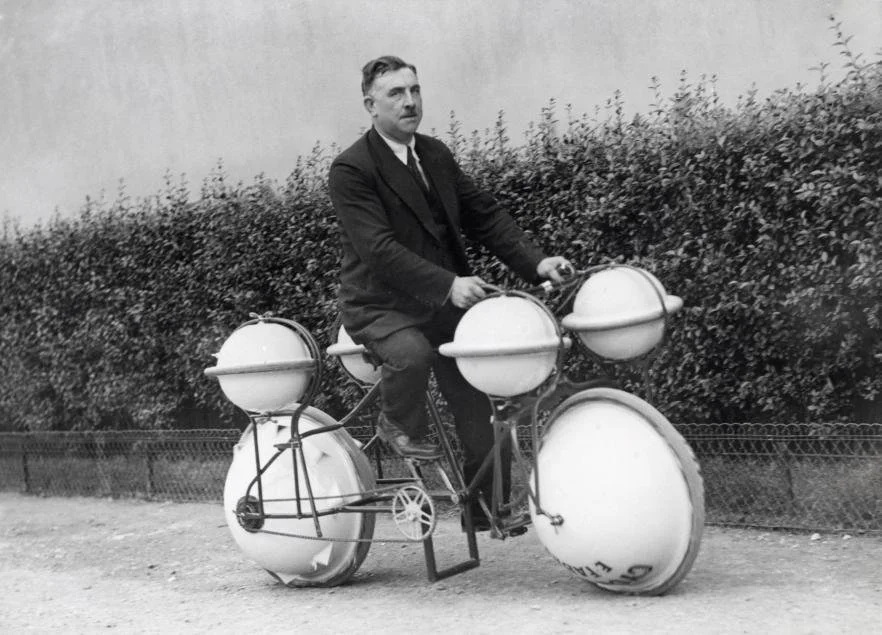Decisioned out
I couldn’t decide on a picture, so here’s a guy on an amphibious bicycle. (Nationaal Archief, The Netherlands)
Nobody really wants to hear the boss gripe about pet peeves, but let me tell you the one thing that saps my life force faster than anything.
It's when I'm asked to weigh in on something that someone else could decide, especially if I've already asked that someone else to take care of it.
"I wasn't able to reach them. Would you like me to try again?"
"Do you prefer that I go to Office Depot or Staples for the supplies?"
"Should I get the blue one or the red one?"
There is certainly a training process my employees need to go through before they can work independently and make decisions confidently on their own. The impact of having them make these decisions, no matter how banal, is life-changing.
Decision fatigue is real, and so many of us who run households or businesses reach this point without even realizing it. It's not the big choices that are challenging; it's the little ones, like picking a brand of toilet paper or deciding what to wear, that can put you over the edge into overwhelm. You get “decisioned out,” and even a simple decision (for here or to go?) can cause you to shut down completely.
I believe that decision fatigue is a huge factor in the burnout and overwhelm that a lot of people have experienced during the pandemic. There are layers of complexity on top of things that used to be simple. Do I want to put my mask on when I get out of my car or right before I enter the building? Cloth, surgical, KN95, or N95?
Those of us who are overwhelmed with decisions don't necessarily want to be. However, giving up the decisions is scary because it means giving up control. There is a direct relationship between the amount of control you want to maintain and the number of decisions you'll have to make as a result.
Thus, a key step forward is to practice letting go of control. "Use your best judgment," we say, wincing. "I trust you."
Another way out of decision exhaustion is routine. Make the decision once, ahead of time, and never reconsider it again (you know, the Steve Jobs wearing-the-same-black-turtleneck-every-day thing). Wake up at the same time every day, eat the same lunch every day, park in the same spot every day, and so on.
When we've automated, routinized, or delegated as much as we can, we have a greater capacity for the big decisions, along with the unexpected ones we must make on the fly. What's more, we will have the clarity to identify additional decisions that we didn't even realize we were making, providing us with an additional opportunity to move toward serenity.
It's important to notice and honor the fact that decision-making takes a lot of mental energy and focus, which has to come from somewhere. When I've led school trips, I'm constantly scanning the environment, identifying potential problems, and updating the plan accordingly, all while working hard to keep twenty kids safe. In order to make this work, I've had to have a "no questions" rule. Even a question like, "What time is it?" overloads my circuits. All questions get directed to another adult so that I can devote my resources to thinking ahead.
Sometimes, I feel silly delegating a five-minute task or declining to answer a simple question. But I know myself and my capacity and what it costs me to do more than I can. In the long run, everyone in my sphere is better off if I am able to focus on what I'm uniquely suited to do, or at least what is most critical.
If you regularly hit the decision-making wall, see what happens when you change your approach by delegating or building routines. Of course you are capable of doing the things, but you might not be capable of doing all of the things, all the time. Relief from unnecessary decisions can bring a wave of creative inspiration — or at the very least, a bit of peace and calm.
